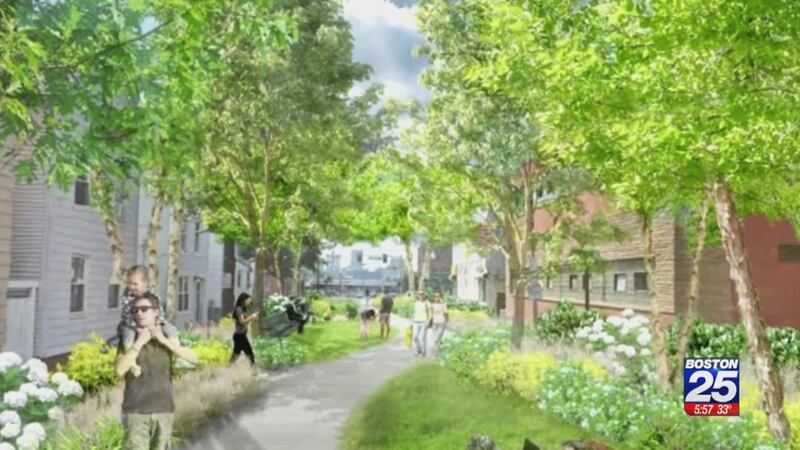BOSTON — As Boston was gearing up for the first deep cold snap of the season Tuesday, some were thinking heat.
In a report called Living with Heat, the Urban Land Institute unveiled solutions on how to keep Boston cool and offer some relief from future sweltering summer heat.
They targeted some of the hottest areas, including Somerville, Lower Roxbury, Chelsea and East Boston.
The ULI says by 2070, the Boston area could have 90 or more days of temperatures over 90 degrees.
The group met with dozens of land use experts, including in planning and development, and they offered several proposals to keep Boston cool.
“Making our communities more resilient to heat will require residents, businesses, land use professionals and governments to work together to design and implement equitable solutions for combating the effects of climate impact,” said Kalila Barnett, a stakeholder at the charrette and the Barr Foundation’s climate resilience program officer.
Solutions include promoting the use of cool roofs in East Boston and the redesigning of Liberty Plaza. The natural wind patterns are interrupted by the plaza, but opening cooling corridors would allow natural breezes into the neighborhood.
In Roxbury, one proposal calls for building a canopy of greenery over the Dudley Square MBTA station. That would anchor one end of a cooling corridor extending along Ruggles Street. They say shade from trees would cool the sidewalks and greenery-covered bus shelters would feature water misters to provide additional relief.
In Somerville, the report recommends utilizing the shaded corridor below the McGrath - O'Brien Highway for pedestrians, cyclists and pop-up vendors, while unearthing a waterway that has been covered for 100 years.
One of the ideas in Chelsea is to redevelop some massive asphalt parking lots into housing and green space.
“We believe this report will help policy-makers and the real estate community acknowledge the consequences of extreme heat and seek forward-thinking solutions,” said Michelle Landers, executive director of ULI Boston/New England.
Representatives of the cities were involved in the report. The organization says the goal is to open a conversation about the ideas in the report.
Cox Media Group








